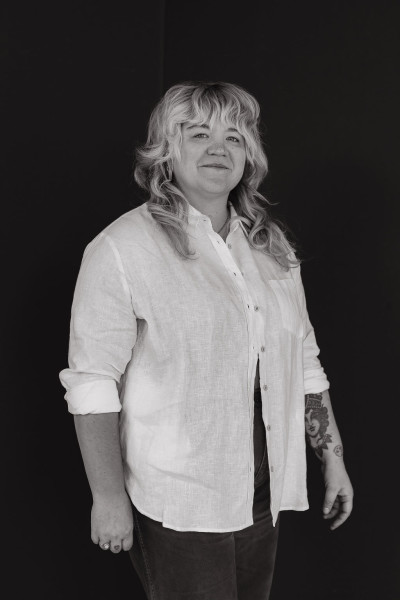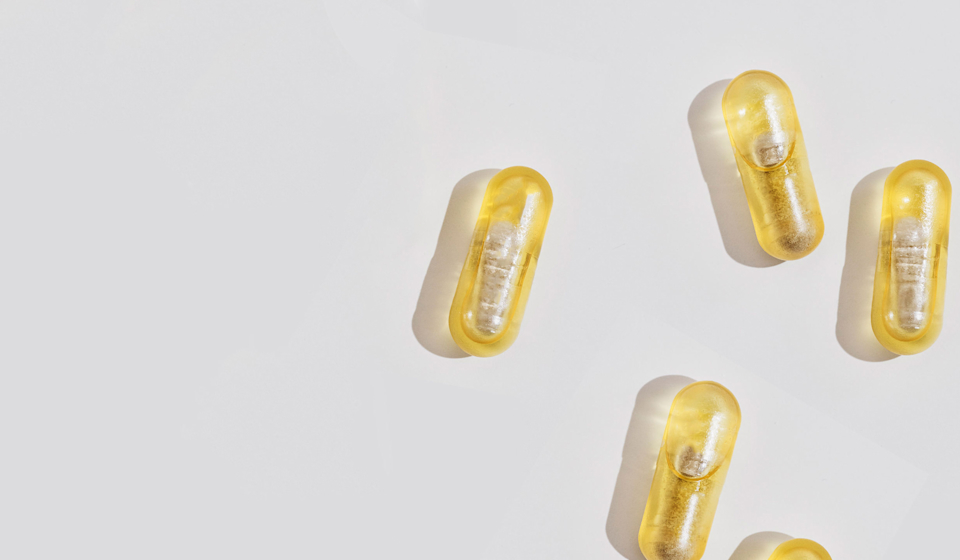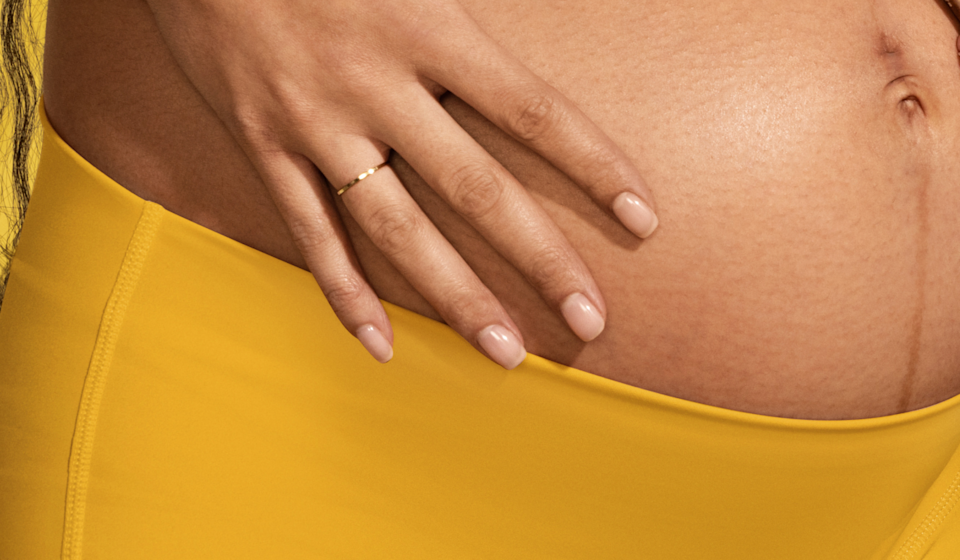The first trimester is often when the most challenging pregnancy signs rear their heads and also the time in which many people prefer to keep their pregnancy under wraps. Couple that with waiting to meet your doctor, midwife, or birth attendant, and the first few months of pregnancy can feel fraught. Also — you’re pregnant. It’s all such a whirlwind. What can you eat? What can you do? What can you Google?
Take a deep breath, we’ve got some answers.
1. Celebrate (But Hold Off on the Champagne)
Pregnancy lands at everyone’s door differently — even if it's much longed for and wanted — and conflicting feelings of excitement, and apprehension might swirl together making you feel indifferent, overjoyed, or stressed. All of it, from over-the-moon happiness to “I really don’t feel anything.” is normal. Some people like to wait until their dating scan to share the news with others, and some people prefer to share right away. Whether you’re celebrating solo or with friends and family, now’s the time to retire your liquor cabinet and stash that bottle of good wine, because the universal recommendation is that alcohol is now off limits. But with so many non-alcoholic alternatives out there, it might feel like even more fun! (Okay, maybe that’s a stretch, but let’s go with it for now.)
P.S. Don’t fret if you had a glass of wine (or three) with dinner last night and found out you’re pregnant this morning. ACOG advises that while it doesn’t recommend alcohol intake of any amount during pregnancy, “serious harm from this kind of use is unlikely.” (2)
2. Find an OB/GYN You Can Trust
It’s hard to know what to look for in a pregnancy care provider until you need or want it—this is where recommendations come in handy. Start with friends and family and ask them questions like “did you feel supported in all your choices” or “how would you describe your birth experience” and you’ll quickly separate the wheat from the chaff.
And if OB/GYN care isn’t what you’re planning, there are midwives, perinatologists, and doulas out there who can support you in having your pregnancy needs met.
3. Schedule a Prenatal Appointment with an OB/GYN
Receiving early and regular prenatal care improves the chances of a healthy pregnancy (3), so it’s important to find an OB/GYN or alternative care provider as soon as you can. Your first appointment is likely to be a general meet and greet but this is a great time to bring any burning questions or concerns you have and to discuss preferences for your care going forward. At this appointment, your OB/GYN will set you up with a dating ultrasound to determine your estimated due date and most likely take some blood work, vitals, and medical history. You’ll continue to see them every month or so for the first six months of pregnancy until appointments become more frequent in the third trimester. This cadence of touch points with your OBN/GYN in those early weeks and months can feel a little few and far between, but the good news is that if everything’s going smoothly, you may not need to see them as often.
4. Start a Prenatal Multivitamin ASAP
If you haven’t already started taking a prenatal multivitamin, now’s the time! Not only have your nutrient needs changed as a pregnant person, but you’re now also in need of those sometimes tough-to-get-enough-from-diet nutrients to support your baby’s development.
Our Essential Prenatal Multivitamin has 12 key nutrients for before and during pregnancy with 100% of ingredients Made Traceable® showcasing each supplier and final place of manufacturing for all active and other ingredients, so you always know what you’re putting into your body.*
For healthy fetal development, our multivitamin contains folate and choline to support neural tube development, and omega-3 DHA to support brain health. It also includes iron, and vitamin B12 to contribute to red blood cell formation, and calcium-helper nutrients like vitamin D3, K2, magnesium, and boron to help maintain bone health.*
Additionally, our Natal Choline supports baby’s cognitive function from infancy to childhood when taken during pregnancy and breastfeeding. Take it alongside your prenatal multivitamin for additional choline intake support — based on research from Cornell University, maternal choline supplementation during pregnancy was shown to help support baby’s information processing speed in the first year of life and support sustained attention in early childhood.*
5. Remove Toxic or Harmful Ingredients
Just like the rest of your body, your skin experiences hormonal changes and can be more sensitive during pregnancy. Anything absorbed by the skin can make its way into your bloodstream – and baby’s bloodstream – so it’s important to balance the benefit and potential harm of any beauty products you consider during this time.
The American Academy of Dermatology Association advises against using acne treatments Isotretinoin, Tazarotene, and Spironolactone, and common beauty ingredients such as Tretinoin, Benzoyl Peroxide, and Salicylic Acid. If you’re looking for a pregnancy-safe skin support alternative, our HyaCera™ supplement features two of the best clinically-studied ingredients.
6. Give Yourself the Rest You Need
We’re not here to lecture you on what you should and shouldn’t do during pregnancy – it all comes down to personal preference and comfort level – but pregnant or not, keeping your body, mind, and emotions healthy and strong are never a bad idea. You might consider reducing your caffeine intake, giving up raw fish aka sushi (noooo), or switching up your gym, running, or yoga practice. Unless you have a particular concern, there’s no need to stop doing something your body is used to—if you ran marathons before, you can still run them now if you feel inclined—but it’s also important to listen to your body and slow down when necessary too.
We’re Here For You, Every Step of The Way
Whether it’s your first or fourth pregnancy, know that every time is different for everyone. You are capable. You are strong. You deserve to feel supported. And in our own small way, Ritual is excited to walk this magical (and sometimes, frankly, bizarre) journey of pregnancy, postpartum, and parenting alongside you. From our Essential Prenatal Multivitamin and Natal Choline, to our evidence-based Pregnancy + Parenthood journal articles, we're here for you every step of the way.










